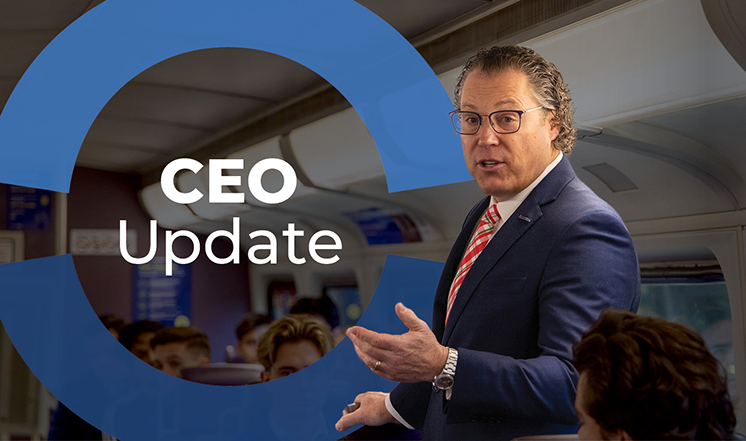
Earlier this month, H.R. 1968, the Full-Year Continuing Appropriations and Extensions Act, 2025, was signed into law following congressional approval. The stop-gap funding measure, combined with appropriations from the Infrastructure Investment and Jobs Act, identifies $20.9 billion for public transit and $16.2 billion for passenger rail. However, key provisions critical to Metrolink operations and initiatives that were previously outlined in draft U.S. House and Senate FY2025 Transportation, Housing and Urban Development appropriations bills were left out of the final legislation. These include $1.5 million in federal earmarks for infrastructure projects and $200 million for public transportation systems to support preparations for the 2028 Olympic and Paralympic Games.
Metrolink and our member agencies have historically enjoyed significant federal investment. Despite our disappointment regarding the omission of these line items, we are moving forward with a pragmatic approach to managing our relationships with representatives at all levels of government as we work to position public transportation in Southern California for long-term success. Our well-established bipartisan support in Washington, D.C., is one of our greatest strengths, and we are doubling down on advocacy efforts as lawmakers shift their focus to the FY2026 appropriations process.
Elected officials recognize the vital service Metrolink provides to their constituents and the economic engine it powers. With Southern California set to host major international events in the coming years, including the FIFA World Cup and the Super Bowl, reliable, efficient passenger rail will be more important than ever. We are continuing to work closely with our federal partners to ensure Metrolink remains a top priority in upcoming funding discussions.
At the state level, we are pushing forward with equal urgency. Safety is fundamental to our mission, which is why we strongly endorse Assemblymember Lori Wilson’s (CA-11) efforts to strengthen penalties for assaulting transit employees. This is an essential, common-sense protection for Metrolink customers and team members. We are also working alongside local leaders like Sen. Catherine Blakespear (CA-38) to advance Senate Bill 741, enabling infrastructure owners like our member agencies to proactively address coastal resiliency to mitigate future service disruptions caused by natural disasters.
Additionally, as state lawmakers shape the future of California’s Cap-and-Trade program, we are actively advocating for the reinvestment of revenues into regional passenger rail. These funds have long supported transit improvements, and channeling more of them into systems like Metrolink is critical to meeting Southern California’s growing mobility needs.
Our public transportation network expands access to jobs and opportunities, drives economic growth and builds a stronger, more connected future for our communities. As the landscape shifts, we are being dynamic and continuing to adapt—meeting challenges head-on to keep people moving and businesses thriving. With every tool at our disposal, we remain committed to nurturing our relationships with policymakers to champion Metrolink’s mission and secure the resources necessary to make progress possible.

